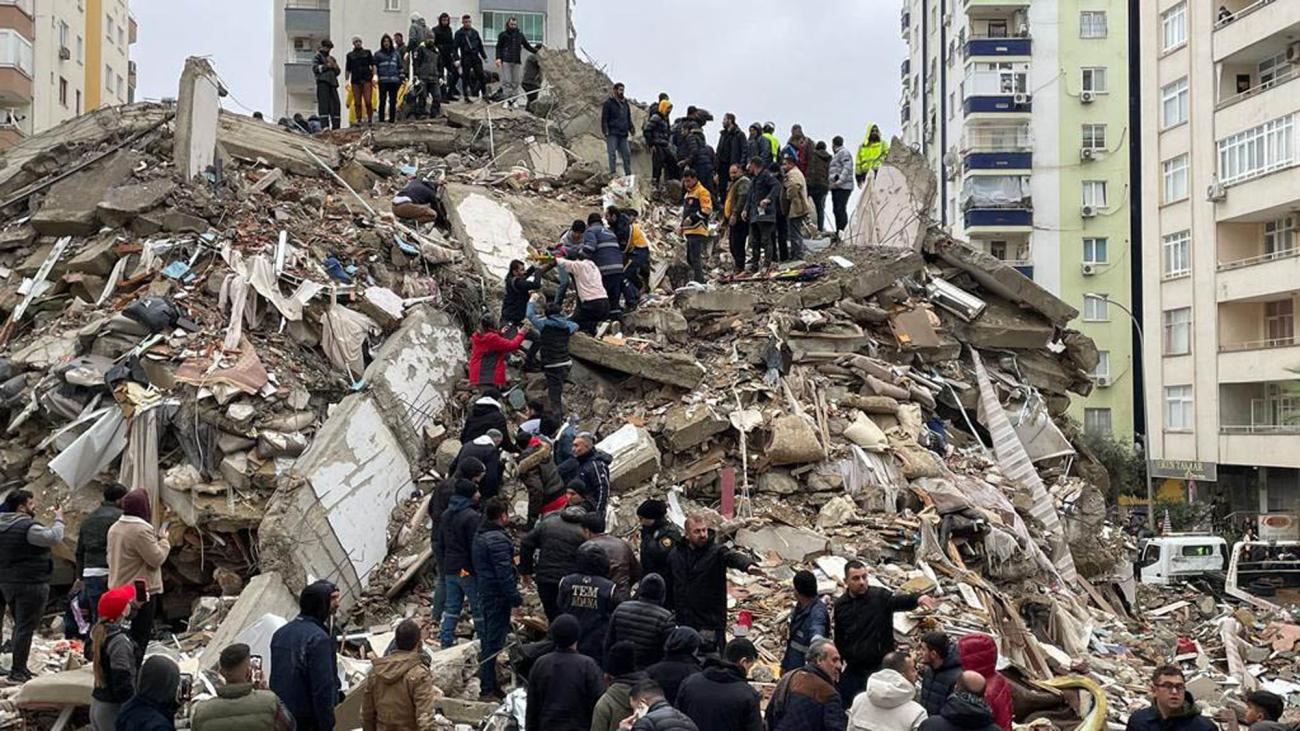CCA expresses grief on loss of thousands of lives in Turkey-Syria earthquake

The Christian Conference of Asia (CCA) expresses grief and mourns the loss of thousands of lives in the earthquake that ravaged Turkey and Syria on Monday, 6 February 2023.
Latest reports indicate that at least 15,000 people have been killed and tens of thousands have been injured in the devastation.
The CCA General Secretary Dr Mathews George Chunakara expressed profound grief at the death and destruction caused by the earthquake and said, “We hold in our prayers the victims and their families as well as the communities in these affected areas that continue to work tirelessly in hazardous conditions to rescue survivors.”
“The CCA expresses solidarity with the people of Turkey and Syria in this tragic situation. We pray for God’s comforting presence among the affected people at this time of loss, destruction, and deep uncertainty. We also commit those engaged in rescue operations and provision of aid and assistance,” said the CCA General Secretary.
The 7.8 magnitude earthquake struck 23 kilometres east of Nurdagi, in Turkey’s Gaziantep Province in the early morning hours, a time when most people were asleep in their homes. The quake is one of the strongest to hit the region in more than 100 years. At least a hundred aftershocks ranging up to 7.5 on the Richter scale have been felt across the region since the quake initially struck.
Thousands of buildings have collapsed in both countries. Although several countries have already sent special teams to aid in rescue efforts, freezing weather conditions are endangering survivors and complicating rescue efforts.
Most worrying is the precarious situation in north-western Syria where over four million vulnerable people affected by the decade-long conflict and civil war were already relying on humanitarian assistance. Aid workers in Syria are reporting that hospitals are overloaded and resources are stretched thin.
The World Council of Churches (WCC) and the CCA’s regional counterpart the Middle East Council of Churches (MECC) have appealed for the lifting of sanctions against Syria to “allow access to all materials, so sanctions may not turn into a crime against humanity”.
Churches in the region, such as the Greek Orthodox Patriarchate of Antioch and All the East, have already begun contributing to the emergency response through the provision of food kits, mattresses, blankets, and other relief materials. The Armenian Catholicosate of Cilicia and the Armenian Patriarchate of Istanbul have contributed to information sharing and are following up on the situation of their congregations in the affected areas.
The CCA General Secretary urged Asian churches to pray for the earthquake victims in Turkey and Syria and to generously contribute financial support to emergency relief assistance undertaken by the churches in the region.











